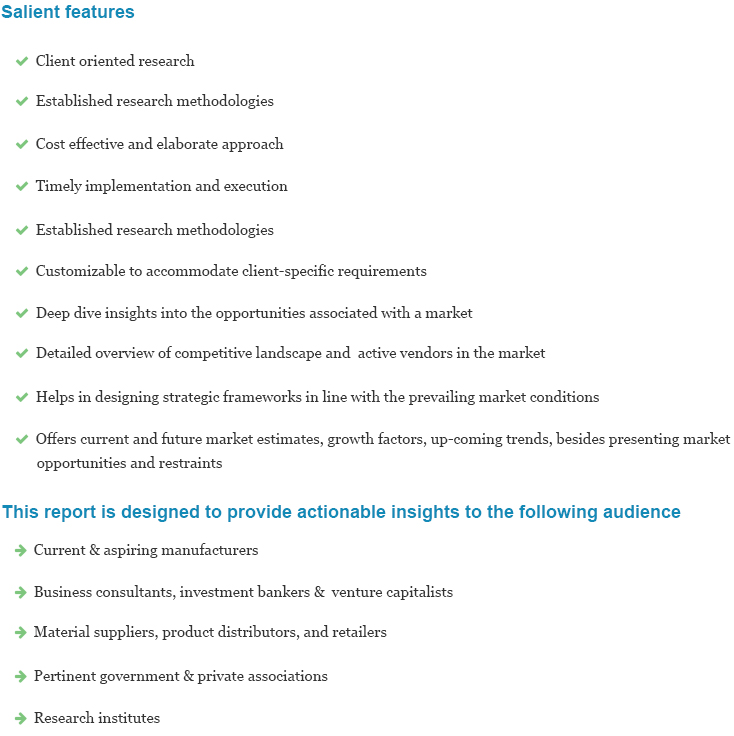
Global Internet Protocol (IP) Market Share, Size, Segmentation, Industry Analysis and Growth, Outlook, Market Research, Forecast Report, 2019 To 2025
- Published: March, 2019
- Format: Electronic (PDF)
- Number of pages: 70
- Industry: Communication Services
The global internet protocol market is estimated to observe impressive growth in the years to come due to rapid proliferation of IP-enabled devices. Shift from circuit switched networks to IP-based networks due to advantages, such as faster transfer of video, voice, and other forms of data is a key driving factor in the market. Organizations are increasingly focusing on the implementation of dynamic IP management address solutions as they require IP address for virtual machines, mobile computers, wireless communication devices, point of sale devices, and IP telephony. For instance, Panasonic System Communications launched KX-NSX2000, an IP-based business communications server, in North America. It is intended to provide uninterrupted communication across numerous locations. Moreover, it has the capability to manage up to 2,000 devices with connectivity for up to 32 sites for small- to medium-sized businesses.
Migration of internet protocol addresses from IPv4 to IPv6 is anticipated to fuel the demand for internet protocol address management (IPAM) solutions. These solutions help in improving the effectiveness of IT infrastructure and reducing the overall operational expenses. The IPAM techniques offer quick and exact provisioning of Domain Name Server/Dynamic Host Configuration Protocol (DNS/DHCP) service protocols. DNS/DHCP services offer automated allocation of IP address and host name lookup allows quick service delivery to business. Managing IPv6 with manual techniques has become difficult and hectic for the organizations. This has increased the demand for automated solutions, which is expected to create several opportunities for the market.
Multi-Protocol Labelled Switching (MPLS) Internet Protocol Virtual private network (VPN) Services is expected to fuel market growth in the years to come. Organizations are increasingly implementing MPLS IP VPN services to improve operational efficiency and reduce costs. Furthermore, aggregation of audio, video, and data onto a single platform from varied sources and the capability to provide scalable bandwidth are expected to fuel the demand for these services. Growing adoption of cloud computing platform is also expected to increase the demand for these solutions. Since MPLS facilitates multipoint full-mesh connectivity, IT departments of government offices and financial institutions can easily maintain their networking and routing related decisions to track security issues. This has, in turn, increased the preference for layer 2 VPN (L2VPN) services. Additionally, organizations that prefer outsourcing their networking and routing solutions generally opt for layer 3 VPNs (L3VPNs). MPLS provides a greater quality of service (QoS), which is a basic need for VoIP and video conferencing. This will, in turn, fuel market growth in the years to come. MPLS IP VPN services offer better bandwidth in order to cater VoIP requirements. Audio conferencing is anticipated to emerge as a leading application in the years to come.
Emergence of internet protocol TV is projected to create several opportunities for the market. Transformation of telecom operators into complement digital service providers (CDSP) due to availability of improved internet infrastructure is anticipated to boost market growth. Telecom operators are adding internet protocol to their service offerings as it offers improved compression and transmission. Internet-based TV consists of services, including HD video calls/conferencing, video games, and smart home applications. High demand for over-the-top (OTT) services is expected to fuel the demand for IPTV. Launch of innovative services, such as 4K UHD IPTV set-top-boxes, which provide better picture quality, can have a positive impact on market growth.
North America is one of the leading regions in the market due to growing trend of IoT and high adoption of big data and cloud computing platform. Asia Pacific is likely to observe high growth due to increasing use of internet and growing penetration of mobile devices.
Some of the leading companies operating in the internet protocol market are Bluecat Network; Cisco Systems, Inc.; Alcatel Lucent; Crypton Computers Ltd.; and Incognito Software Systems, Inc.
For instance, Black Box Corporation developed an IP-Based KVM System called Emerald SE. It offers high-performance and scalable connectivity in traditional as well as virtualized environments, and facilitates customization of features for consumers to fulfill their unique application requirements. Key features of the system include PCoIP Virtual Machine Access, Pixel-Perfect Video Mode of Operation, and Virtual Machine Sharing.

Choose License Type
- World's largest premium report database
- Transparent pre & post sale customer engagement model
- Unparalleled flexibility in terms of rendering services
- Safe & secure web experience
- 24*5 Research support service
